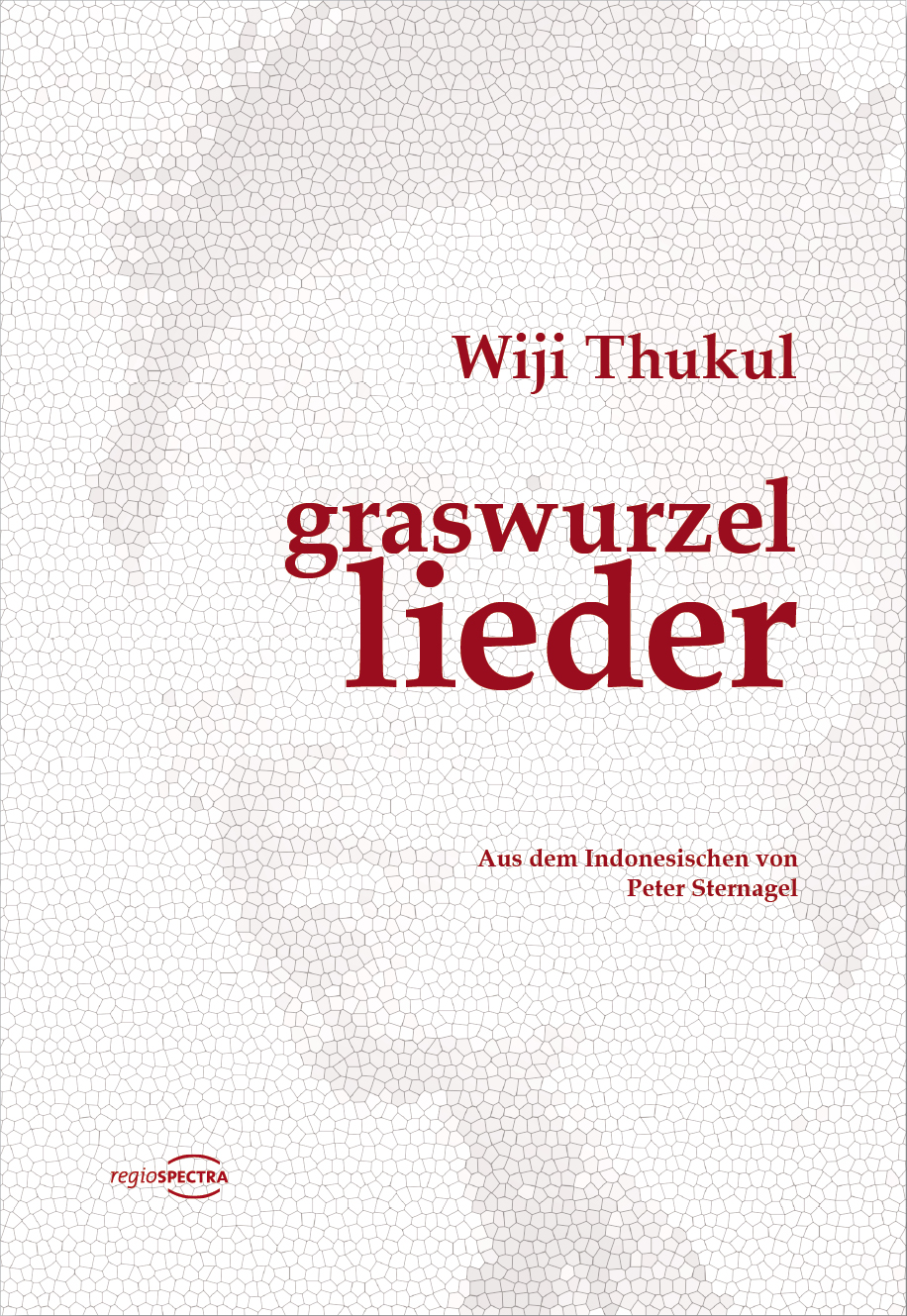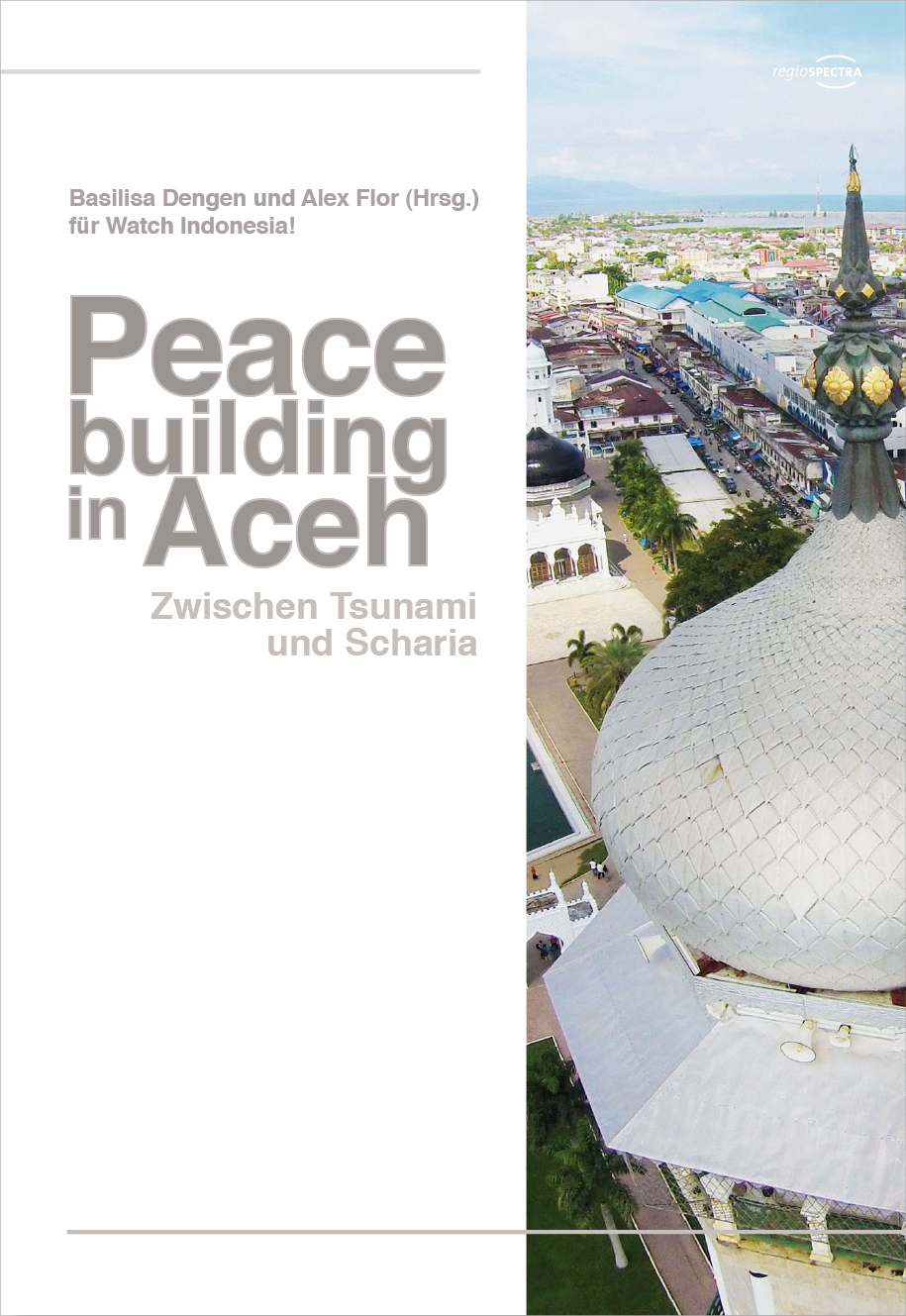
Elitetruppe bekommt neuen Geheimdienst und deutsche Handfeuerwaffen
12. März 2001
von Ingo Wandelt
Der folgende Bericht in der Jakarta Post vom 12. März besitzt schwerwiegende Implikationen für die Sicherheit der Bevölkerung Indonesiens. Die angesprochene Maßnahme zum Aufbau einer speziellen militärischen nachrichtendienstlichen Einheit im Eliteverband Kostrad der indonesischen Streitkräfte TNI sollte sehr Ernst genommen werden. Er bedarf vor einer abschließenden Bewertung jedoch der genauen Überprüfung. Die Autorin des Berichts ist offenkundig keine Expertin in militärischen Fragen. Dennoch gibt der Bericht Anlass zu großer Sorge.
Kostrad to launch new intelligence battalion
By Tiarma Siboro, JAKARTA (The Jakarta Post, 12 March 2001): With unrest, bomb attacks and separatist violence affecting various parts of the country in recent times, many people have condemned the weaknesses of the Indonesian Military’s (TNI) intelligence gathering system. In the past, the TNI intelligence system was known to be quite efficient and was so pervasive, particularly during the New Order era, that it delved into not only security and defense matters, but also the social, economic, and political arenas.
The Army’s Strategic Reserves Command (Kostrad) has expressed its concern over the recent regression and the need to have a strong and powerful intelligence unit for security, not political, purposes. Kostrad chief Lt. Gen. Ryamizard Ryacudu expressed the dilemma that he and his force faced by saying that while in many respects they had been excised from the body politic, nevertheless the demands for them to be proactive kept increasing. „The challenge for my troops in maintaining the nation’s security has become more difficult due to the separatist demands that have been aired among us,“ he remarked. In response, Kostrad has set up a special intelligence unit dubbed the Security Surveillance Battalion (Tontaikam).
The battalion will begin special training on Monday at Kostrad’s newest training camp in the hilly Sangga Buana area of Karawang, West Java. „The intelligence capabilities of my combat units must be improved. But it should be underlined that I only want to create a professional military combat intelligence unit,“ Ryamizard said.
Operational assistant to the Kostrad chief, Col. Bambang Darmono, told The Jakarta Post that each of the TNI’s branches had their own intelligence units. „In the Army, there is an intelligence detachment at each Military Command (provincial) level. There is also, for example, the Sandi Yudha Group IV in the Army’s Special Forces (Kopassus) and the intelligence platoon attached to Kostrad’s airborne brigade,“ Bambang said. Kostrad, which comprises about 22,000 soldiers, already has an intelligence unit.
But Bambang lamented that enhancing and improving its capabilities had never been a major priority and that its personnel had never received additional training.
According to Bambang, in January Kostrad decided to reorganize and enhance the capabilities of its intelligence unit. „Through this reorganization, we recruited the Tontaikam members, with its personnel being drawn from each of Kostrad’s six infantry brigades,“ Bambang said. The Kostrad commanders have demanded high standards of would-be members of the new platoon, including an age limit of between 25 and 35 years of age. „We are demanding very high requirements from every member, including a high degree of sensitivity in predicting the weather, and good capabilities in battle field analysis and enemy strength estimation,“ Bambang said. „We now have six companies of Tontaikam, with each company consisting of between 41 and 50 men,“ Bambang said.
The two-and-a-half month training course is being held in cooperation with the Army’s Kopassus. Five weeks of the course will be under the tutelage of Kostrad instructors, three weeks under Kopassus’s instructors, and one week will be devoted to improving the trainees‘ capabilities in the water. Bambang noted that one of the most crucial skills which the battalion members needed to possess was the power of resistance — to maintain clarity of thought and analysis despite suffering from extreme exhaustion, whether mental or physical, and at times of intense pressure. The training course includes a daily 25-kilometer race over the hills and through rivers. „While undergoing the course, we will suddenly intervene and make them take psychological tests which they will have to pass with satisfactory results,“ Bambang explained. [combat intelligence!!]
Bambang said that in the future the platoon would be the first reconnaissance unit sent into a combat zone to collect information on the enemy’s strength.
He further revealed that apart from honing their marksmanship using standard SS-1 Army rifles, Tontaikam personnel will also be taught to use the German-produced MP-5 handgun. While the handgun is not standard issue in the Indonesian Army, Bambang said such training would be necessary as „most of the elite forces in the world use this gun.“ Kostrad has allocated about Rp 250 million (US$25,000) for the training course.
Bewertung:
Der Gegenstand des Berichts ist nicht der Aufbau eines nachrichtendienstlichen Erfassungssystems, wie es Indonesien z.B. zur Früherkennung von Konfliktpotentialen dringend benötigte, um rechtzeitig vorbeugende, vor allem friedliche Maßnahmen der Konfliktprävention ergreifen zu können. Der Mangel an dieser Art von Erkenntnissen (intelligence) ist gerade im Zuge der Geschehnisse in Kalimantan zu Recht kritisiert worden. Der Begriff „intelligence gathering system“ ist in diesem Bericht missverständlich gebraucht. Beschrieben ist der Aufbau von combat intelligence, wie sie Teil der militärischen Gefechtsführung sind. Eine westliche (NATO) Definition lautet:
„That knowledge of the enemy, weather, and geographical features required by a commander in the planning and conduct of combat operations. It is derived from the analysis of information on the enemy’s capabilities, intentions, vulnerabilities, and the environment.“
Eine deutsche Entsprechung ist Gefechtsaufklärungsergebnisse.
Angesprochen und beschrieben ist der Aufbau von bewaffneten Aufklärungseinheiten (pengintaian = reconnaissance) zur Unterstützung der Kriegführung gegen Separatisten im Zeichen von „maintaining the nation’s security“.
Falsch übersetzt ist die Bezeichnung der Einheit Tontaikam (in der Langform wahrscheinlich peleton pengintai keamanan). Gemeint ist nicht ein Bataillon, sondern ein Peleton (Ton), „platoon“, oder „Zug“. Ein peleton besteht zumeist aus drei regu (Gruppen oder „squads“) und umfasst etwa 30 bis 50, maximal jedoch 100 Mann. Laut Zitat Bambang Darmono sind bereits sechs Züge (nicht Kompanien) á 41 bis 50 Mann aufgestellt.
Die Einsatzgebiete sind nicht genannt, jedoch sind Aceh und Papua anzunehmen *). Die Ausbildung der Elitesoldaten lässt auf Einsatze im schwer zugänglichen Gelände, einschließlich Wasser, schließen. Der Name ‚Sicherheitserkundungszug‘ lässt auf angenommene Kampfhandlungen im Feindkontakt schließen, und somit auf combat reconnaissance, Gefechtsaufklärung. Die Angaben zur Bewaffnung der Züge verdienen besondere Beachtung.
Besorgniserregend ist die Übertragung der Ausbildung an Kopassus, besonders mit genanntem Bezug auf die Gruppe IV, Sandhi Yudha („geheime Kriegführung“), die bekannt ist für verdeckte, schmutzige Operationen jenseits rechtlicher Grundlagen, einschließlich der taktisch-strategischen Provozierung von Gewaltakten. Die Entführung von Demokratieaktivisten im Vorfeld der Wahl vom März 1998 geht nachweislich auf die Kappe der Gruppe IV.
Es ist ernsthaft zu befürchten, dass Kostrad nicht nur Eliteeinheiten der combat intelligence aufzubauen gedenkt, sondern am Vorbild der Kopassus verdeckte Kriegführung betreiben will, die überall in Indonesien betrieben werden kann. Auf jeden Fall stellen die Tontaikam eine Verschärfung der Sicherheitslage in Indonesien dar, zumal der Bericht keine Erwähnung zu irgend einer öffentlichen Kontrolle über diese Einheiten macht.
Der Bericht gibt zur berechtigten Vermutung Anlass, dass die TNI, oder zumindest der Heeresverband Kostrad, nicht mehr an einer friedlichen Lösung sicherheitsrelevanter Konflikte glaubt oder daran Interesse zeigt.
*) Ergänzender Hinweis von Alex Flor: Für einen Einsatz in Aceh spricht der am 8. März ebenfalls in der Jakarta Post erschienene folgende Artikel.
The Jakarta Post March 8, 2001
Kostrad declares war against GAM
JAKARTA (JP): Chief of the Army Strategic Reserves Command (Kostrad) Lt. Gen. Ryamizard Ryacudu on Wednesday declared war against Free Aceh Movement (GAM) separatist rebels.
„We have prepared our (Kostrad) troops to fight not the people, but only enemies of the state. GAM is an enemy of the state. We must quell them all,“ Ryamizard said after presiding over the commemoration of Kostrad’s 40th anniversary at the command’s Airborne brigade headquarters in Cilodong, south of here.
Ryamizard added that he was ready to dispatch his troops to the troubled province any time the Indonesian Military (TNI) chief instructed him to.
However he also admitted to have already sent two battalions of Kostrad troops there.
„The fact is my troops are always ready to leave for Aceh,“ Ryamizard said.
Currently, the TNI deploys some 30,000 troops in the province.
The three-star general said it was GAM and not the (Acehnese) people who rejected the presence of the Indonesian military there.
Speaking about efforts to improve the intelligence capability of its combat units, Ryamizard said three and a half months of intelligence training will be held starting on March 12. The training will be held in cooperation with the Army’s Special Force (Kopassus).
In the latest report of violence, three male bodies were found at separate sites in East Aceh on Tuesday, outgoing spokesman of Police’s Cinta Meunasah operation Sr. Comr. Kusbini Imbar told The Jakarta Post by phone on Wednesday.
The three were identified as Ibrahim Adjar, Nasruddin and Hendra.
„The three bodies bore gunshot wounds and severe cuts. We suspect that they were subjected to this violence by the rebels,“ he said.
Several ambushes by alleged GAM armed rebels towards patrolling police and military officers took place in North Aceh, Pidie and South Aceh on Tuesday and Wednesday.
Meanwhile, three additional judges from Medan, the capital of North Sumatra, are set to handle the trial of detained chief of the Aceh Referendum Information Center (SIRA) Muhammad Nazar on Thursday.
„We are ready to hold the trial on Thursday,“ one of the appointed judges N.K. Simatupang told Antara on Wednesday.
Judges Azis Syarif and M. Taufik from the Medan District Court have also been named, with presiding judge Farida Hanoem from Banda Aceh District Court and Alimusahadi of Sabang District Court appointed as panel members.
Nazar, who has been detained since Nov. 20 last year for organizing a mass congress to demand a referendum in Aceh, is being charged under Articles 154 and 155 of the Criminal Code for showing hostile intentions towards the state, which carries a maximum sentence of seven years in jail.
The new Minister of Justice and Human Rights, Baharuddin Lopa, issued decree No. M.05.AT.01.10/2001 stipulating the relocation of Nazar’s trial to the Aceh capital after the defendant failed to appear at the opening session on Feb. 21 in Medan.
Lopa’s predecessor Yusril Ihza Mahendra had previously ordered the trial be held in Medan due to security concerns and the fact that only one judge was available in Banda Aceh, namely Farida. (02/50/edt)











